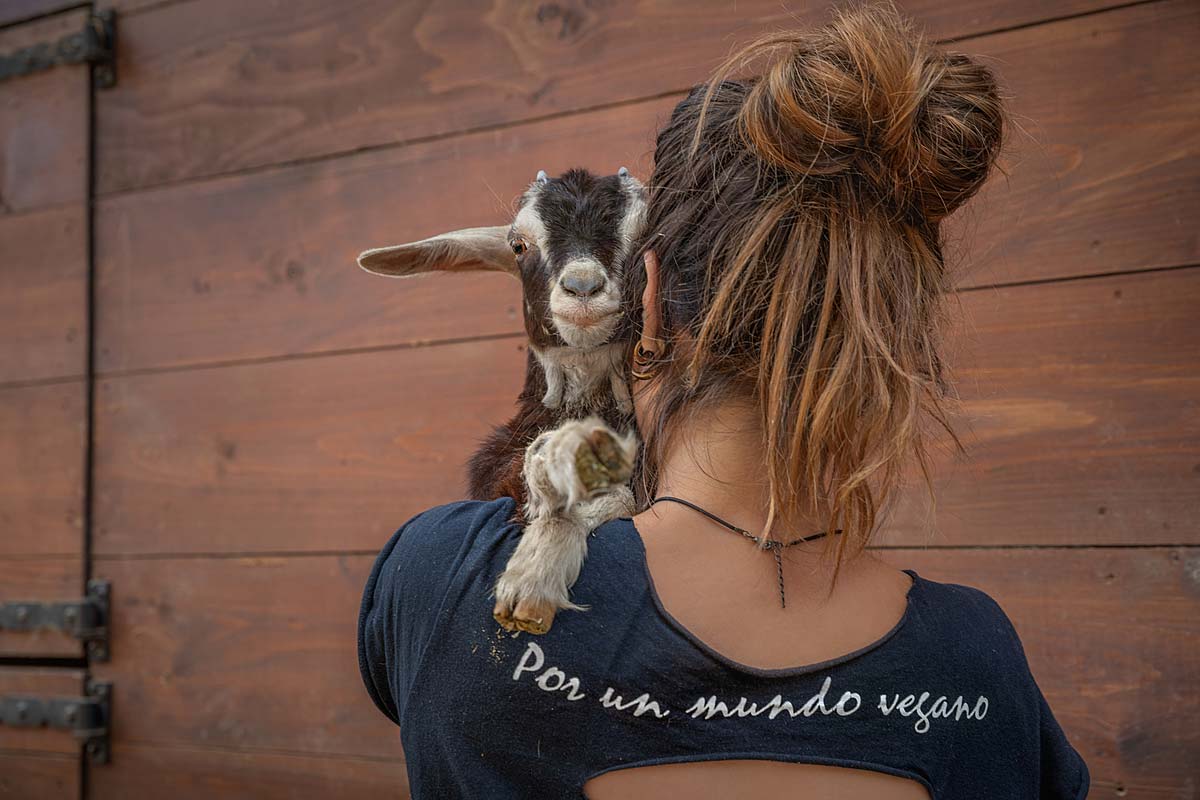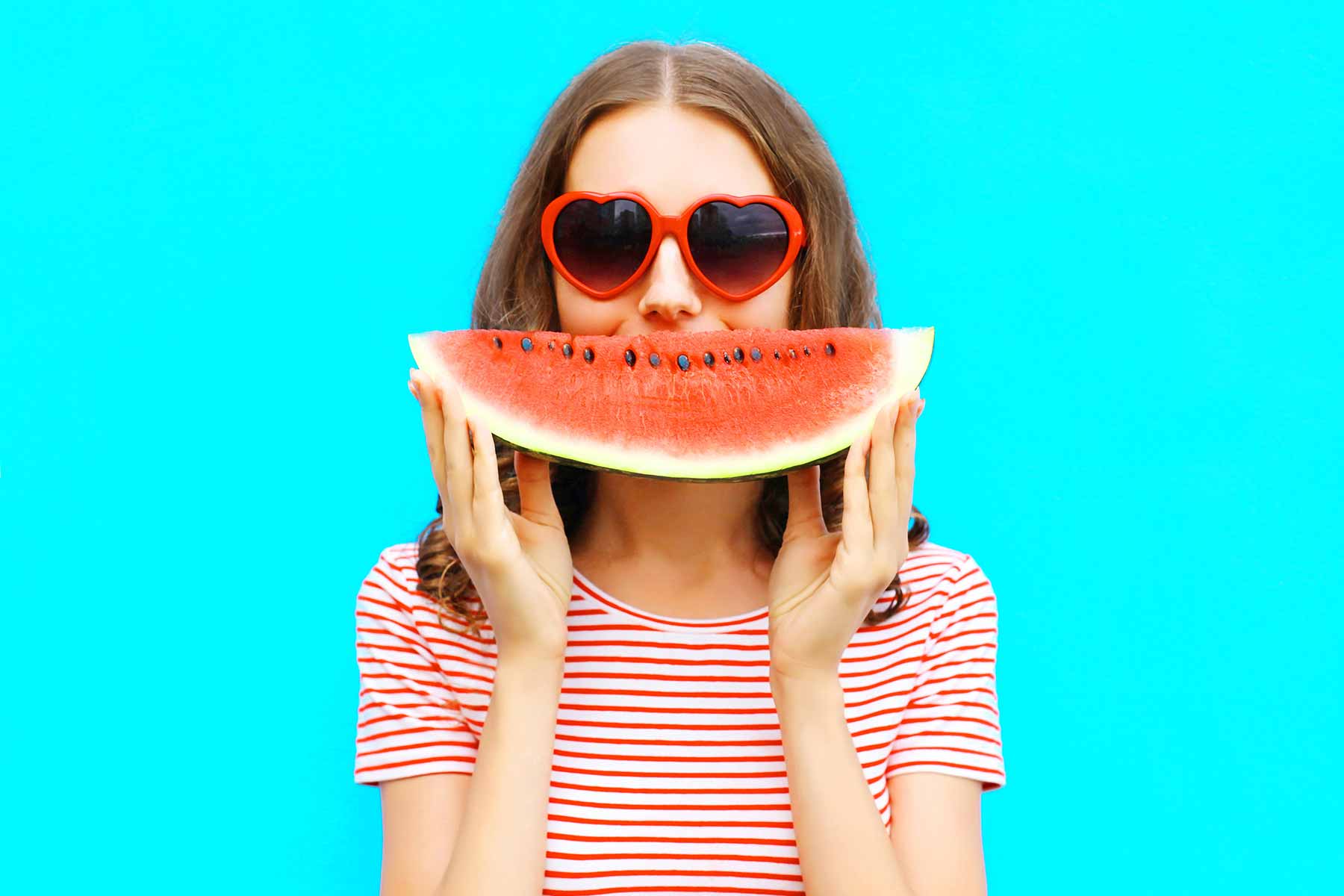Whether you live with a teenager wishing to be vegan or you are one, this blog is written just for you. Here we offer up our best tips from decades of experience to show you how one person’s transition to veganism can be healthy, stress-free, and very positive for all the family, even if it does not feel like that now!
Should Teenagers Be Vegan?
Meat-eating parents of wannabe vegan teenagers may be rolling their eyes at the thought of adjusting to their child’s latest “fad diet”. They may think that it cannot be nutritious, that their child will not be healthy, that it will cost more money, or that it will create additional work for the household’s meal providers. We hear you, but we’re here to tell you that none of this is necessarily so.
Is Veganism Nutritious for Teenagers?
First, let us reassure you about health. A balanced vegan plant-based diet is suitable for people of all ages and stages of life, according to leading nutritionists including the American Dietetic Association. That includes newborn babies and elders, and of course, teenagers, too. It is important to eat a balanced diet, of course, but that is true whether you eat meat, are vegetarian, or are vegan. We could each live off fast food and sodas, but we would know that we are not eating nutritious foods. When we transition to veganism, it is not enough to leave meat, eggs and dairy out; we need to make sure we add healthy foods in. Here are a few things to look out for:
- Calcium: ensure a good supply by eating fortified plant milks and yogurts, pulses, seeds, grains, leafy greens and foods made from soy.
- Iron: it really shouldn’t be difficult to get sufficient iron if you eat a range of beans, lentils, nuts, seeds, wholemeal bread and pasta, and plenty of fruits and veggies.
- Protein: this is the one people always worry about, but it is the one we really don’t need to, as protein is in just about every food. Choose beans, nuts, seeds, pulses, tofu and tempeh, and a wide range of grains and veggies, plus all the foods made from them such as bean burgers, peanut butter, tahini, and vegan meats like sausages or burgers.
- B12: this little vitamin is one to watch out for. It can be found in some fortified products such as breakfast cereals and plant milks, but the advice is to take a supplement if you think you may not get sufficient.

Will My Teenager Be Healthy as a Vegan?
Health is a multifaceted blessing and without knowing your teenager, we can’t say for sure!
And in reality, we all make food choices based on factors other than our health, such as taste, convenience, societal or familial influence, and what our peers are eating. That means, almost none of us eat healthily at every meal every day of every year. But what we do know is that all processed meats cause cancer, and all red meats are “probably carcinogenic” too. So, if your teenager orders a vegan burger at the local fast food restaurant instead of a meat burger, that is still a very positive decision. However, the more we each choose from the abundance of whole plant foods (vegetables, fruits, salads, nuts, grains, herbs, beans, lentils, seeds, spices and so on), the better our bodies are likely to function. So, while we don’t know what other factors may be influencing the health of your child, we can say with complete confidence it is perfectly possible to be a healthy, vibrant, happy person — teenager or otherwise — as a vegan. And in fact, being vegan can help us stay healthy over the course of our lives.
Is it Expensive To Be Vegan?
Multiple studies indicate that eating a vegan diet is cheaper than eating a diet that contains meat, fish, dairy, and eggs. But, the exact cost depends on what you buy, and that may depend on what is available in your area. Plant-based alternatives to milk, cheese, and meat may be more expensive than their animal-based counterparts (largely due to our taxes propping up those industries) but overall the cost of a shop is still likely to come down because fruits, grains, beans, and vegetables are often among the cheapest things we buy.
Another cost factor is convenience. If we are short of time and buy pre-prepared foods to put straight into the oven or microwave, this will almost always cost more than making a plant-based meal from scratch.
Will Cooking for a Vegan Be a Lot of Work?
When one person in the family goes vegan, this can create more work for the person or people tasked with making meals, at least in the short term. However, there are ways to minimize this, and the new vegan in question may need to make some compromises.
We recommend having a conversation about meal provision as soon as possible, and most families find a way to make it work through a combination of:
- Finding meals that can have meat or dairy added to one portion but that are otherwise vegan, such as stir fry.
- Making small changes to existing loved recipes so the flavor remains the same but it becomes vegan, such as making a spaghetti sauce using soy or lentils instead of ground meat, or burritos with beans.
- Finding new recipes that everyone loves but that are vegan by default (such as a lentil dahl, rich bean stews, or flavorful salads or soups).
- Finding meals you can simply cook side by side, such as putting a vegan pie into the oven alongside a non-vegan one.
- The vegan making their own meal an agreed number of times per week.
- The vegan offering to cook for everyone else an agreed number of times per week.
When these negotiations have been made, it can help to pin up a weekly rota on the fridge so everyone can be reminded of what has been agreed.

Vegan Cooking for Teenagers
If you are a teenage vegan and you have just agreed to cook meals for your family, that’s great news. If you are already a proficient cook, you need no advice from us. But if you are new to cooking, here are some tips to ensure the end product matches your expectations, and that your family looks forward to the meals you make.
- Start simple. Check the cooking times, the number of steps in the recipe method, and the ingredients list. Aim for a meal you can make within 30 minutes, using ingredients you like, and recognize.
- Think about the people you are cooking for when you choose a recipe. If you are trying to impress meat eaters, consider the kinds of foods they like best.
- It is always better to give yourself plenty of time to make a recipe you have never made before, so don’t wait until you’re hungry before you start cooking. You can always reheat it when it’s time to serve.
- Don’t be tempted to deviate from the recipe too much. After you have made a recipe once, you may come up with ways to add to it or improve it, but it’s a good idea to learn the basics before you start to experiment.
- Check how many the recipe serves before you start cooking. You can always double all the ingredients or halve them all if you need more or less.
Recipes for Vegan Teenagers
These are our favorite simple, super-tasty recipes for new vegans, whatever age you are.
- Stuffed Bell Peppers
- Creamy Spinach Pasta
- Simple Sausage Traybake
- Quinoa Salad with Kidney Beans and Avocado
- Pita Bread Pizza
- Fabulous Green Things Risotto
- Chickpea Tofu & Spinach Curry
- Pumpkin Soup

Simple Meal Plan for Vegan Teenagers
The key is not to get overwhelmed! Being vegan is often a case of making small changes to everyday meals. Here are some simple ways to eat what you always ate, but vegan.
- Breakfast: most breakfast cereals are suitable for vegans, so find one that is and add plant milk or yogurt. If you eat toast, use dairy-free butter and enjoy your usual peanut butter, jelly, houmous, or vegan cheese on top. Oatmeal can be made with plant milk. And if you like a cooked breakfast, look for meat-free sausages, and then add your favorite sides: grilled tomatoes, fried mushrooms, and hash browns. You can even scramble tofu!
- Lunch: make sandwiches or wraps using dairy-free butter or cheese, and load them up with salads, olives, bell peppers, pickles, or whatever it is you love. Choose a vegetable and bean soup. Look out for vegan sushi. A baked potato always goes down well with some smoky beans and a side salad. Or grab a falafel wrap or a bean burger from your local restaurant.
- Dinner: we’ve given you a few simple options above but rest assured you can make most dishes vegan given the time and availability of ingredients. Lasagna, curries, mac and cheese, beet burgers, enchiladas, pizza … whatever you love, just search for a vegan recipe online, or check out your local store.
- Snacks: healthy options include nuts, fruits (fresh or dried), a little dark chocolate, cereal or fruit snack bars, and seeds. But there are plenty of other vegan options to enjoy including potato chips, popcorn, vegan ice cream, and candies.
Telling Family and Friends You Are Vegan
Hopefully, we’ve got the food covered, and you feel reassured about both the health aspects of veganism, and the practicalities of cooking for a vegan in the household. But, there is another element to this. Those of us who become vegan need to tell the people in our lives about this important decision.
We do this for two reasons: one, so our loved ones don’t spend time cooking something we cannot eat, and two, because we really care about you, and we want to share this important moment in our lives with you. It means a lot to us that you know what’s going on with us, and that you understand why we are making this decision. We do not do this to make your life harder, or to cast judgment on your own choices!
So, what’s the best way to tell friends and family you are now vegan? Here are our tips:
- This decision is yours, and how / when you tell people is your choice too. If you think some people may not understand, that they may even mock or deride you, you don’t have to tell them straight away. Sometimes it’s easier to wait a few weeks or months, and then say ‘Oh, didn’t you know? I’ve been vegan for ages.’
- If you have been invited for a meal, don’t wait until you are sitting at a table full of non-vegan food to tell your hosts that you are vegan. Tell them immediately, and then — if you see the panic in their eyes! — offer some help. Perhaps you could find out what they are planning to cook and offer to bring a vegan version for yourself, or maybe you could offer to bring dessert for everyone.
- For some new vegans, it is tempting to try and convert everyone they know to veganism. We get it! Once you know the horrors of the farming, slaughter, and meat trade, and you understand the devastation caused by animal agriculture on our planet, you want everyone to know about it. Our advice, however, is to dial down the lectures. If people ask about your decision, go ahead and tell them. But they should be allowed to make their own decisions in their own time.
What Do I Do if My Family Won’t Let Me Be Vegan?
This is a very tricky situation. If you know you want to be vegan but your parents or guardians have said no, we’d suggest you find a good time to sit down and talk to them about it. This means choosing a time away from meals, when there is space to talk and to listen. You need to find out why the answer is ‘no’. Once you know what is worrying them — whether that is health, cost, workload or something else — you can go about finding the answers to reassure them.
There are some great books on health and ethics, which can help you learn and educate others, and there is plenty of good evidence and advice online, too. But be sure to look out for credible sources. Not everything you read is true!
It may be that you need to start with a compromise, such as being vegan three days a week. Or perhaps you could be vegan two meals a day but eat whatever is being offered for dinner. If your decision affects others, you will need to negotiate with them, and keep negotiating as things evolve and change.
If the answer is a straight-up no, and there is nothing you can say that will convince your parent(s) or guardian(s) otherwise, you may need to accept that this is not something you can do at this time. But whenever you do have a choice about what you eat, you can still always choose the vegan — or most vegan-friendly — option. And one day soon, you will be making all your own food choices, so keep learning about veganism to be ready when that day comes.
The Angry Vegan
Here is an inconvenient truth: almost all parents lie to their children about where their food comes from. It certainly makes mealtimes a lot easier if children do not understand that the food on their plate is a piece of their beloved Peppa Pig, but this can set up a serious conflict for the future. Most of us learn to hold two opposing views at the same time (I love animals; I pay for animals to be slaughtered). But there is an increasing number of young people who recognize that those two things are actually incompatible and they want to live in accordance with their ethics. Given this, it is understandable why they may feel upset, or even angry, with those who did not tell them the truth straight away. So, if you are a teenager who is angry about being fed animals all their lives, we hear you. And if you are a parent of such a teenager, we know this is not your fault — after all, society has conditioned us all to believe that meat is normal, natural and necessary, and overcoming that conditioning is not easy work. We hope we have shed a little light on why your teenager may be upset. More than that, we hope you are proud of your smart and ethical teenager for making that connection when so many others don’t, and for having the courage to go against inconsistent societal views and make the world a better place by changing what they eat.
A New Vegan in The Family
When one family member decides to go vegan, this creates ripples that may mean others are confronted with both ethical and practical considerations about their own food choices. This may feel uncomfortable at times but we firmly believe that having a vegan in the family is a great thing! Not only do they make us more aware of the hidden costs of foods, they help us see — and perhaps confront — our own conditioning. Like most people, we may hate factory farms but still pay for them to exist each time we go to the store. We may recycle for the planet, not realizing that the biggest impact we have on the climate, on wildlife, on forests and on the poor health of rivers and oceans is by eating meat. A vegan in the family opens our eyes and helps us see a kinder way. And whether we start eating a little more vegan food alongside them, or come to decide they are right and we become vegan too, both their passion for justice and their compassion are beautiful to see. This alone should convince us that we as parents or guardians have done a pretty good job bringing up such a selfless, intelligent, and loving teenager.



